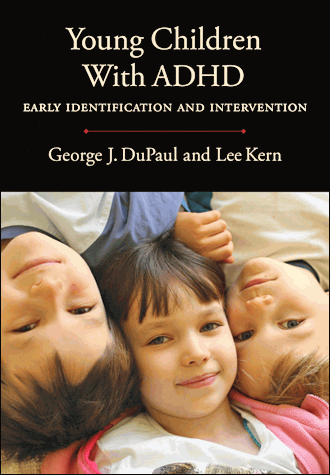Project PEAK - Promoting Engagement with ADHD Pre-Kindergarteners
Project PEAK is currently recruiting!
Project PEAK is currently recruiting!
Space is limited! Free assessment and completely confidential!Do you have a 3, 4, or 5 year old child?
Does your child exhibit frequent inattention, act quickly without thinking, become easily distracted, and have a high activity level? Complete our interest form to begin the eligibility process!

SPACE IS LIMITED - CONTACT US TODAY!
FREE ASSESSMENT & COMPLETELY CONFIDENTIAL
About Project PEAK
PROJECT PEAK: Promoting Engagement with ADHD Pre-Kindergarteners
Sponsored by the Institute of Education Sciences (IES)
U.S. Department of Education
Parents will gain effective behavior management strategies to use in their home and community, receive support from a child development specialist, develop a personalized plan of action and connect with other parents.
We will do initial screenings/assessments in the summer and fall and conduct classes in the fall and spring. The family education program will begin in the fall.
What We Are Looking For
-
Age 3-5
-
Enrolled (or plan to be enrolled following COVID-19) in a preschool, nursery school or group daycare setting at least 2 days per week
-
Exhibiting behavioral symptoms of ADHD (ADHD diagnosis not necessary) including frequent inattention, acting quickly without thinking, distractibility, and a high level of activity
-
Families should be within a 1 1/2 hour radius of Lehigh University, located in Bethlehem, PA
-
Parent must have access to computer with internet access. However, parents and guardians are strongly encouraged to reach out to us in case they have difficulties in obtaining access.
What are the Expectations
-
Complete 10 weekly parent education sessions
-
Allow data collectors to visit your home in person or over Zoom 3 times over a ten-week period to observe you using the strategies taught in the program
-
Complete a set of assessment measures several times across a 2-year period.
What You Will Receive
-
Free education on how to improve their child's behavior and early reading/math skills
-
Receive a brief report regarding their child's behavioral and academic functioning based on our research measures
-
Small stipend for completing a set of measures before and after treatment
The purpose of PEAK is to evaluate both face-to-face and online early intervention family education programs and is designed to target the issues of young children (age 3-5) exhibiting early behavioral symptoms of attention-deficit/hyperactivity disorder (ADHD). We are looking for 180 parents/guardians to assist with the evaluation of this program
Contact us at inpeak@lehigh.edu or 610-758-5270 to learn more.
Project CAP
Interested in supporting families experiencing challenging child behaviors? Consider participating in our control group for families of typically developing 3-5 year old children! Participating families are comepensated for completing academic and behavioral assessments and receive written reports of their child's progress over time. Find more information on Project CAP here or complete our interest form to begin the eligibility process!
The symptoms of attention-deficit/hyperactivity disorder (ADHD) often begin early in life. In fact, many young children enter school with behavioral and cognitive symptoms that put them at a significant disadvantage compared with their typically-developing peers. Over the past several decades, researchers, psychologists and educators have devoted much time and effort to understanding and treating ADHD. Yet only recently have these efforts begun to focus more closely on the specific needs of preschool-aged children who are disruptive or inattentive. This book, by George DuPaul and Lee Kern, a school psychologist and special educator respectively, is the first to describe empirically supported early intervention with children aged 3–5 years who have or are at risk for ADHD.
An Answer for Pre-K ADHD
Attention Deficit Hyperactivity Disorder, or ADHD, has quietly become one of America's most critical public health crises. The incurable disorder is responsible for upward of $52 billion in health care costs every year - nearly $17,500 per individual, according to the Centers for Disease Control and Prevention. Unfortunately, children are being diagnosed with the disorder at a record pace. ADHD diagnoses have increased an average of 3 percent annually since 1997. But helping children and families identify - and manage - the symptoms during early school years may help offset the problems associated with the disorder as they get older, says George DuPaul, professor of school psychology. In 2009, DuPaul and colleague, Lee Kern, professor of special education, found that a series of non-medicinal interventions geared toward children between the ages of 3 and 5 significantly improved their social and academic behavior. The 135 children who participated in the study had all shown signs of having ADHD, using criteria established by the American Psychological Association. In 2011, the tandem extended their research of the same children to include a wider set of 40 measures. Again, they found the children responded favorably to tailored interventions. Teachers reported a sharp decrease in students' oppositional and noncompliant behavior, for example. Remarkably, the percentage of children in the multiyear study meeting the criteria for ADHD declined from 100 percent to 62 percent in just two years. "We have a lot to learn about children who are the most vulnerable and at-risk for ADHD," says DuPaul. "But intervening with appropriate supports, especially in the home, can go a long way in helping children manage and treat their ADHD symptoms."

